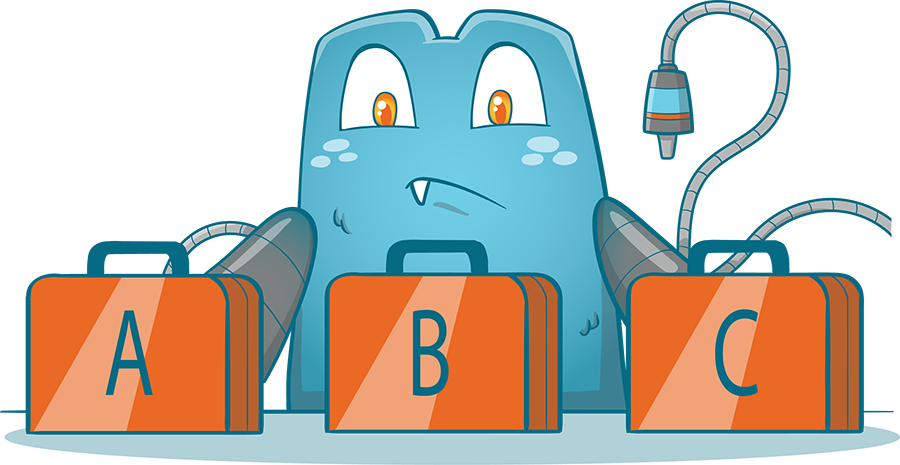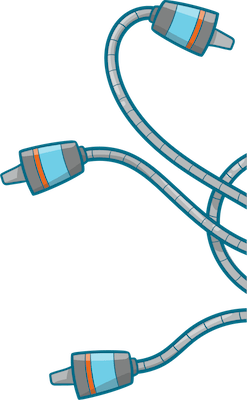Backlinks, External Links or Internal Links: Which of the 3 is More Important?

You might have read about links on the internet, and you’re wondering what you should use on your website. There are three types of links that you might encounter: backlinks, external links or internal links.
In this article, we will discuss how each type works and give you an idea of what links are essential. After this discussion, you should be ready to improve your strategies in earning the top spot on search engine results pages (SERPs)
Identifying Links on a Website
Upon landing on a webpage, you will see clickable elements or highlighted words. These can either be an internal link or an external link. If you click the element or highlighted word and you’re transported to a page on another website, it means that the link was an external link.
Suppose the link brought you to another page but still within that domain or website. In that case, the link can be considered an internal link. Basically, external links lead you to pages outside your domain, while internal links lead you to pages within your website.
So, you’re probably wondering, ‘How do I locate backlinks then?”
If you’re looking on a webpage for backlinks, you won’t see any. The reason is that backlinks come from another website. A lot of people get confused with the difference between a backlink and an external link.
To give you a simple explanation for this, a backlink is a link from a website other than your domain, while an external link is a link that came from one of your pages.

External Links
There are a lot of ways where you can use external links, but the most common is to cite content or resources from other websites. When crafting blogs and placing factual information, it would be a good idea to substantiate your claims with a citation of your source.
When citing, you need to ensure that the site is authoritative to ensure the information you incorporate into your content is credible and trustworthy. You must be wary of the information you place on your site since it is one of the factors that web users look at when judging the quality of your content.
Without trustworthy and accurate content, you won’t be able to build a group of loyal readers. That is why for every factual information you incorporate into your content, you need to back it up with citations.
The effect of external links will be amplified if the sites you use as your reference are authoritative resources, like sites that have .gov or .edu as their domain extension. The reason behind this is that websites like these usually have information that is backed by scientific research or high-quality data gathering methods.
Most of the time, site owners are afraid to use external websites because doing so will let them leave your website. When this happens, you can use the setting where a new window is opened when a link has been clicked on your site.
Search engines like Google also take external links seriously since it checks the relationship of the pages linked from your site. Having reliable and authoritative sites as your reference can increase your ‘expertise’ in that field since it signals search engines that the network you’re creating is full of highly authoritative sites in your industry.
Internal Links
Internal links are what web owners use to connect all the web pages in your site and create an organized site structure. It can come in different forms like text, images, videos, or other elements that can be found on websites.
- Link Pages Within Your Site
Generally, internal links have three purposes for your website. The first is to lead your visitors to content relevant to the page they are currently on. With internal links, you can create a clear path for users to take so that they can find other pages on your website with ease.
Leading web users to a certain point in your site can mean that you can give them all the information they need or convert them to do a specific task. So, this means that internal links are effective in creating a road map for your users. As your users go deeper into your site, they also spend more time on it, which is good for your bounce rate and on-site time.
If your users find it easy to navigate your website, it means that your site’s user experience (UX) is excellent.
- Allow Crawling
The second purpose of internal links is to make your pages more visible to crawlers. With internal links, you can help search engines fully understand what your site is talking about, its structure, and its flow.
Plus, using internal links lets you maximize the crawl budget allotted for your site. A maximized crawl budget means that spiders can spend more time on your site, which means that they can get more of the context of your site and help with the indexing of your pages.
- Spread Link Authority
Link authority, also known as link juice, can be spread using internal links. When a page (page X) gets linked by another website (backlink), it receives a portion of the authority the linking site has.
Suppose page X has received link authority. Through internal links, you can spread that authority to other pages. Doing so can help boost the rankings of the pages you link from page X.
Backlinks
Internal links and external links are essential for your site, but backlinks are more crucial. Backlinks are considered as one of the foundations of search engine optimization (SEO). You’d probably need many high-quality backlinks since Google’s algorithm considers it a core factor in determining page rank.
Backlinks are similar to citations in research papers. When a site sends a link to one of your web pages, it acts as a vote of approval, meaning that they trust your content and deem it credible and accurate.
However, getting backlinks from random sites will probably do more harm than good. When the news about backlinks and how they increase your rankings came out, many site owners started resorting to black hat SEO—purchasing backlinks and putting the URL of your pages in the comments section or similar locations.
Backlinks Aren’t Created Equally
For example, sites A and B (same products, under the same industry) link to the same page on your site. The authority they pass is dependent on the authority of their domain. So assuming that site A has more authority, on a scale of 1-10, ten being the highest, the link that site A gives your site can be a ten. On the other hand, the authority that site B can provide as much as a nine.
Since site A is more authoritative in the industry, site B can never give more authority to your website unless it overtakes site A’s authority.
In addition, a site can give your site a juice that can be as low as “1”. This means that getting 10 low-authority sites that provide a “1” will not be better than linking only two sites that can give a “10.”
That is why you need to focus on the quality of the backlinks you’re earning rather than the quantity. Also, you need to factor in the site’s relevance to provide a backlink to your site to ensure you get the most value from the link.
Even though search engines have introduced different factors in judging a page’s ranking, backlinks are still one of the top factors. So, you still need to focus on how you can acquire more high-quality backlinks.
The good thing about getting more high-quality backlinks is that it also grabs the attention of search engines. When search engines see that your site’s link profile is good and that your content is valuable to web users, they will put you at a spot where more people can benefit from what you have to offer.
Simple Tricks to Get Backlinks
One of the best ways to do this is to create high-quality content that will invite more readers. When other websites see that your site is getting attention because of the content you present, they will naturally link to it. This means that you’re getting backlinks with lesser effort.
But, if you’re planning to be aggressive, building a network can be a good thing for you. Once you’ve made a good network, you can reach out to them and request links to your important pages.

Backlinks or External Links or Internal Links: Your Link to Higher Rankings
The three types of links (external and internal links and backlinks) are important for your website since they serve different purposes. Not using one will affect your website, so be sure to make the links on your website diversified. When every type of link is present, you can maximize the full potential that links bring to your site.
Getting high-quality backlinks means you will also receive a ton of link juice. To spread the juice to other essential pages on your site, you’ll need a reliable internal linking tool. Are you ready to start building internal links on your site? Check out Internal Link Juicer to see if it fits your needs.






